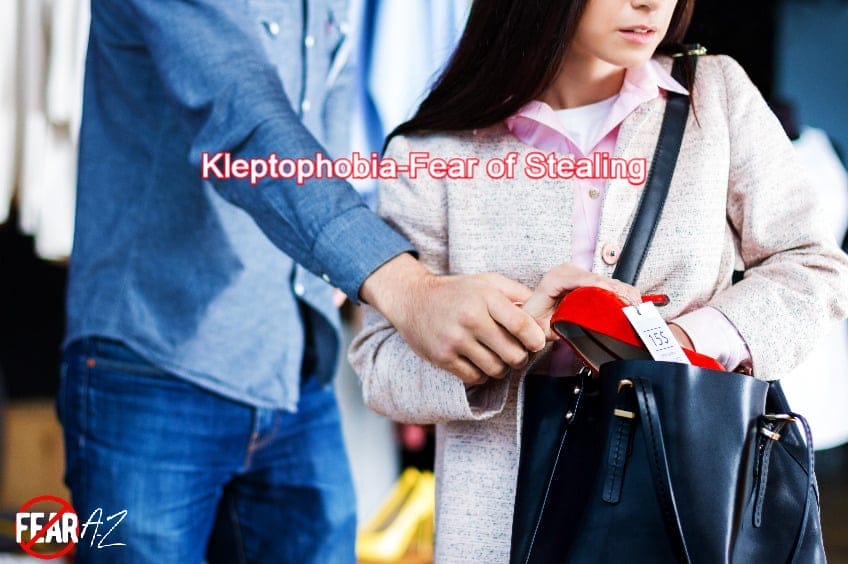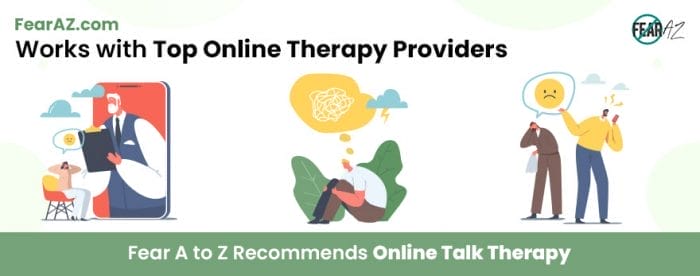Share This Article
Kleptophobia Is the Irrational Fear of Stealing
Kleptophobia, the fear of stealing, can cause intense anxiety in those who suffer from it. If you have a fear of stealing, you might feel anxious in any situation where stealing might be involved. The thought of taking something unlawfully—even by accident—can bring on a host of physiological and psychological symptoms.
If you have a phobia of theft, you may go to extreme lengths to avoid anything that could be construed as stealing. You might even refuse to pick up a penny off the ground because you’re afraid it might be considered stealing, even though it’s not.
As a kleptophobic, you’ll avoid places and situations that might trigger the fear. This extreme avoidance may give you temporary relief from your anxiety, but it may also reinforce your fear in the long run. In fact, you might find yourself avoiding more and more things because you’re afraid they’ll trigger your phobia. But let’s be clear: avoidance itself is stealing your chance to live a normal life.

Are you living with kleptophobia? Maybe it’s time you faced your fear. Yes, this can be difficult, as it may mean denying yourself control in certain situations. However, by making the effort, you may still be able to overcome this fear. Read on to learn more.
Symptoms of Kleptophobia
With kleptophobia, even the thought of taking something unlawfully may bring on symptoms and in some cases lead to panic attacks. During a panic attack, individuals with kleptophobia can experience an increased heart rate, rapid breathing, increased blood pressure, muscle tension, trembling, and excessive sweating, among other symptoms.
Common Psychological Symptoms Include:
- Feeling anxious when thoughts of theft arise
- Anxiety or panic when hearing about theft
- Consistently avoiding situations where stealing or thoughts of stealing could occur
- Difficulty coping with the intense fear and anxiety caused by the phobia
Common Physical Symptoms Include:
- Muscle tension and cramping
- Shaking
- Sweating
- In severe cases, panic attack
If you’re experiencing any of these symptoms and if they’re causing distress in your life, try self-help methods or seek help from a mental health professional. Licensed professional can work with you to develop coping strategies and techniques to manage your symptoms and improve your quality of life.
Potential Causes of Kleptophobia
The origins of kleptophobia are unknown, but it’s likely that both genetics and environmental factors contribute to its development. If you have a family history of mental illness, especially anxiety disorders or specific phobias, you’re more likely to develop kleptophobia. This could be due to your genetic makeup. Environmental factors may also contribute to the development of this condition, such as experiencing a traumatic event associated with the fear.
It is important to note that the exact causes of kleptophobia are unknown, but it’s generally accepted that both genetic and environmental factors play an important role in the development of any mental disorder. Therefore, it can be helpful to consider both factors when understanding your risk of kleptophobia.
Some Possible Treatments
Professional Treatment Options for Kleptophobia
If you’re experiencing severe anxiety or panic attacks related to kleptophobia, it’s important to seek help from a mental health professional. A licensed professional can help you learn coping strategies and techniques to manage your symptoms and improve your quality of life.
Cognitive behavioral therapy (CBT) is one commonly used treatment for anxiety disorders, including kleptophobia. This type of therapy helps people understand the thoughts and behaviors that cause their anxiety and teaches them skills to change those thoughts and behaviors to reduce anxiety.
Exposure therapy is another possible treatment method. Exposure therapy for kleptophobia involves gradually exposing the client to the fear in a controlled and safe environment. This may involve the individual holding onto small objects such as coins or pens and gradually increasing the object’s value over time. The therapist may also encourage the client to imagine theft or a situation where theft is possible. It’s important that a therapist gradually increase the level of the client’s exposure to the fear in order to effectively help overcome it.
Psychiatric medications, such as antidepressants or anti-anxiety medications, may also be helpful in managing kleptophobia. These medications can help reduce symptoms of anxiety, such as panic attacks, and make it easier to participate in therapy and other treatment activities. It’s important to consult your doctor before starting any medication, as they can have side effects and may not be suitable for everyone.
It is important to note that there are no specific treatments for kleptophobia, and the most effective treatment plan depends on the specific needs and circumstances of the individual. It may be helpful to work with a mental health professional to determine the best treatment for you.
Self-Help Options for Kleptophobia
- Exercise and yoga
- Meditation
- Limit drugs, alcohol and caffeine
Kleptophobia is a rare condition and not many resources are available. Using self-help methods in conjunction with professional therapy, such as with a psychologist, can be helpful in finding ways to manage and treat the condition.
In Conclusion
Do you think you may have trouble with this powerful fear of stealing? Rest assured, treatment options are available to help you overcome kleptophobia. Call your doctor or mental health clinic and see what they have to offer. And hey, health insurance may even cover the cost. Take the first step today and seek help.




